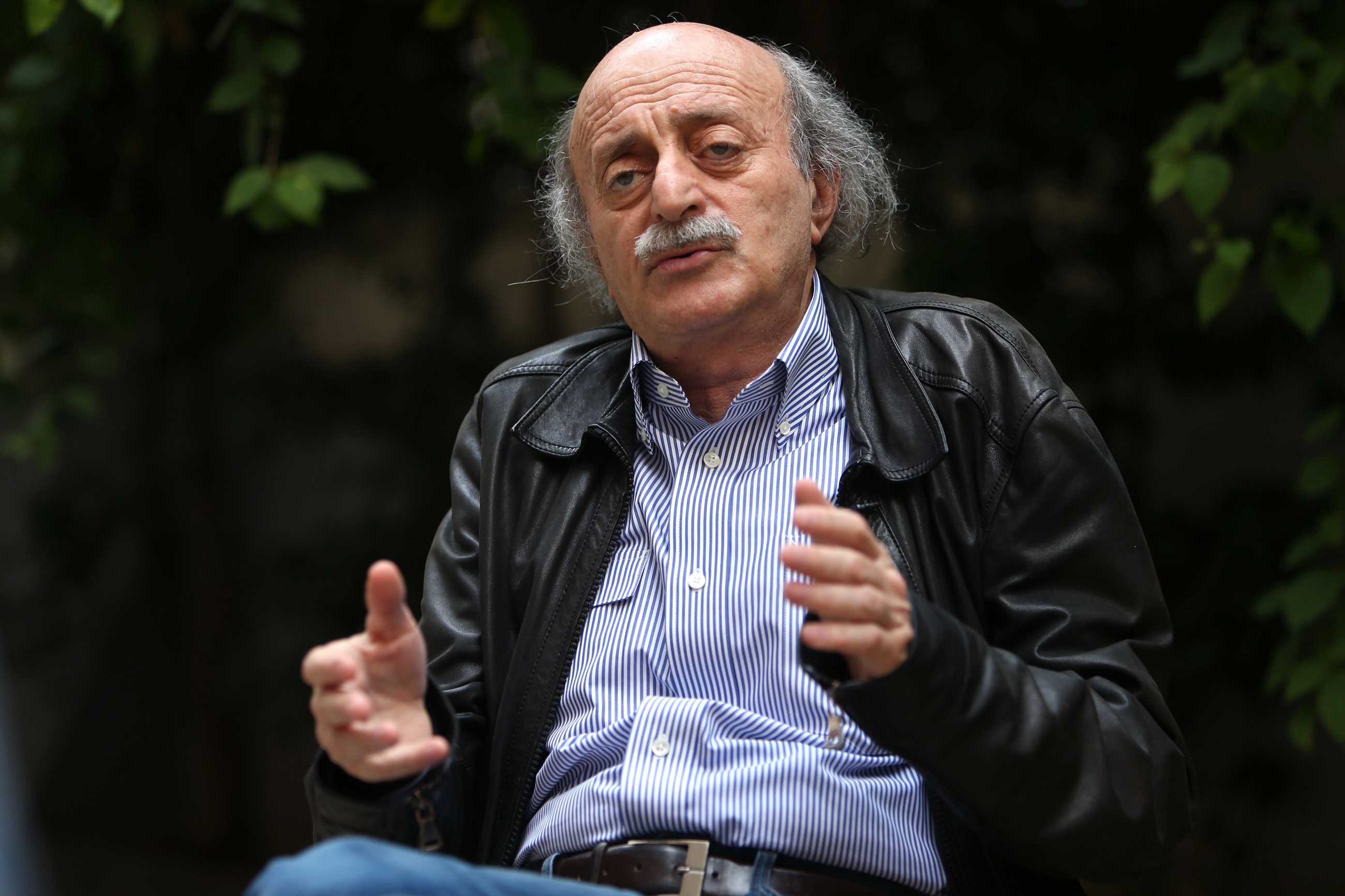Lebanon's Walid Jumblatt resigns as head of his political party

Lebanese Druze leader Walid Jumblatt is stepping down as head of the Progressive Socialist Party (PSP) after nearly half a century at the helm.
Lebanon’s official National News Agency said Jumblatt, 73, has called a party conference for 25 June to choose his successor.
Jumblatt became leader of the PSP, a left-wing party primarily supported by members of the Druze sect, in 1977, two years into Lebanon's 15-year civil war when his father Kamal Jumblatt was assassinated by suspected Syrian agents.
Also inheriting the leadership of the Druze community in Lebanon, Jumblatt became a key figure in the conflict as one of the country's most recognisable militia leaders.
Following the 1989 Taif Accord that ended the conflict, Jumblatt remained an influential figure, and along with Rafic Hariri led political resistance against the Syrian tutelage of Lebanon, which lasted until 2005.
Stay informed with MEE's newsletters
Sign up to get the latest alerts, insights and analysis, starting with Turkey Unpacked
Jumblatt's political longevity has been credited to his shifting affiliations. Lebanon's confessional political system gives the Druze a guaranteed number of MPs in parliament, and the community and the PSP have often cast the deciding votes in key contests, giving Jumblatt power to act as a "kingmaker".
Since 2017, Jumblatt's son Taymour has been taking a more prominent role in PSP and Druze affairs.
As a leading figure of Lebanon's sectarian oligarchy, which is blamed for the corruption and strife that has caused the country's devastating economic crisis, Jumblatt is often reviled by Lebanese who want to see a dismantling of the political elite.
He has acknowledged responsibility for Lebanon's woes as part of the ruling establishment, but insisted that he is one small part of a broader system and should not be singled out by critics.
Jumblatt stepped down as an MP in the 2018 elections. The PSP currently has eight seats in Lebanon's 128-seat parliament, taking over four percent of the vote.
Middle East Eye delivers independent and unrivalled coverage and analysis of the Middle East, North Africa and beyond. To learn more about republishing this content and the associated fees, please fill out this form. More about MEE can be found here.




